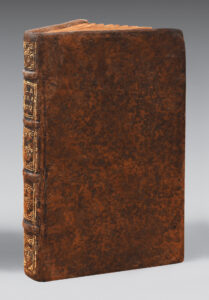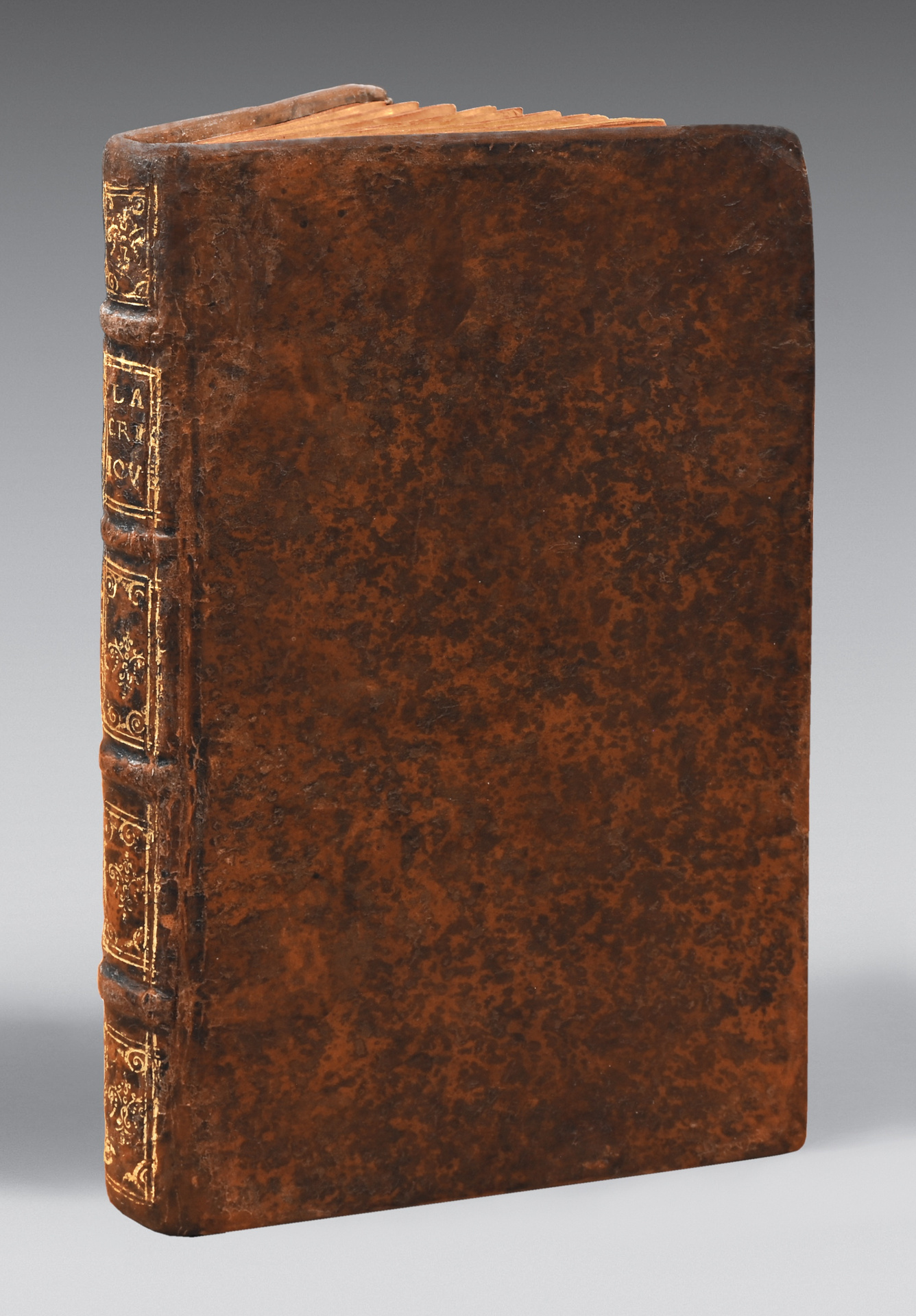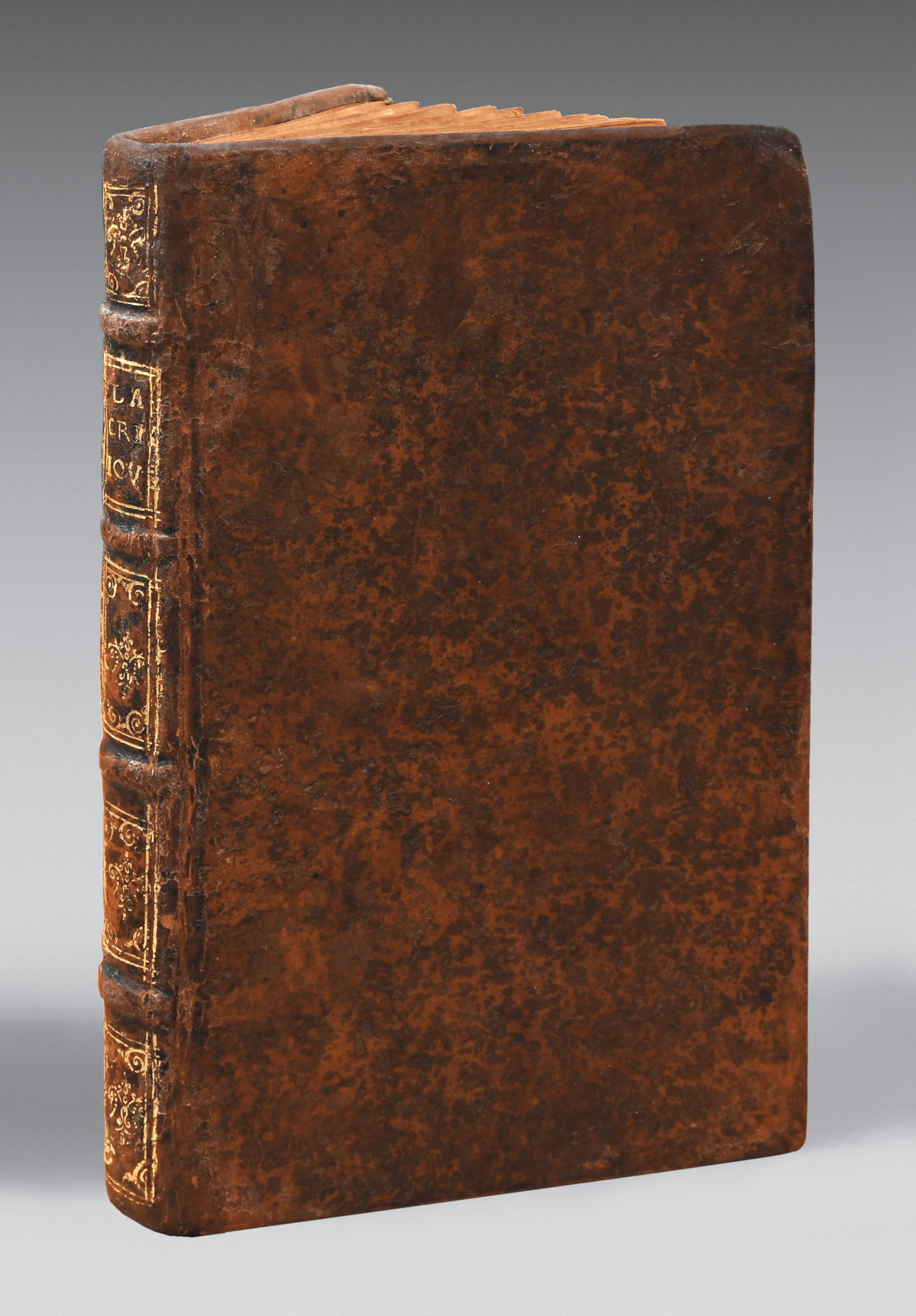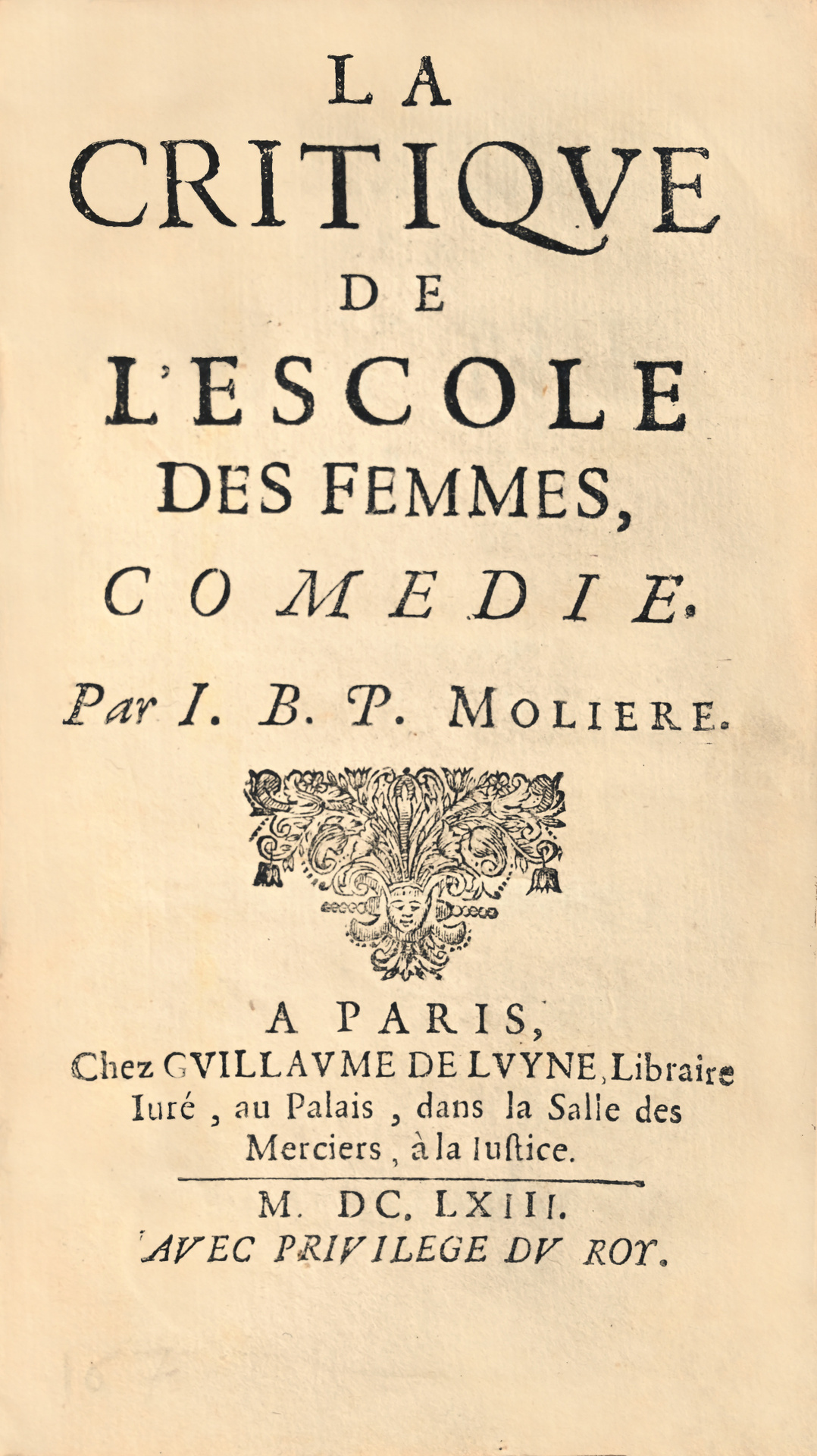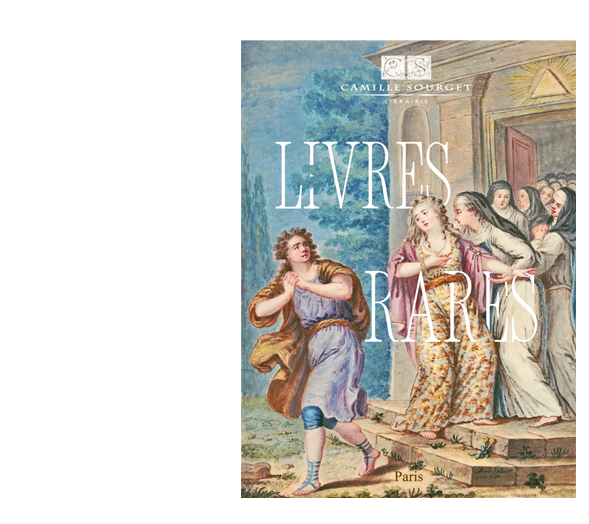Paris, Guillaume de Luyne, 1663.
12mo [146 x 83 mm] of 5 ll. and 117 pp. Granite-like calf, decorated spine, mottled red edges. Contemporary binding.
Rare first edition.
Key play in the quarrel of L’Escole des femmes, in which Moliere presents his theatrical theory and exposes his ideas on the comic genre.
La Critique was born of the need for him to answer his detractors. […] Moliere speaks in his own name through his simulacra, before soon learning the “I” […]. The nobility and the court make their entrance. La Critique announces and outlines Le Misanthrope. In la Critique, he claims the right to pleasure for the spectator of Theater (Alfred Simon, Molière, une vie).
“Printed for the first time, 7 August 1663.
The printing having been supervised by Molière, his spelling is interesting; thus, explains M.P. Lacroix, he writes: la plus-part, obcenité, soupé, etc.
The action takes place in the salon of a witty woman, Uranie. Three ladies (the lady of the house who defends Molière, Elise, Uranie’s cousin, and Climène), a knight, Dorante, who is, so to speak, Molière himself, and a poet, the pedantic Lysidas, discuss the theatrical event of the day: L’Ecole des femmes. Climène finds the play offensive for her precious taste and her moral sense; the marquis, who has not seen it, criticizes it and finds it “of the last detestable” because it has pleased the parterre. As for the poet, he judges it badly executed and, after having broken it down into “protase”, “epitase” and “peripatetic”, estimates that it does not conform to the traditional rules. Dorante, who defends the work, replies that the famous rules “are only a few observations that common sense has made on what can take away the pleasure that one takes in these kinds of poems… The same common sense which has made them otherwise easily makes them every day, without the help of Horace and Aristotle”. The great rule is to “please”, to please the Court, but also the parterre, and for that it is necessary “to paint according to nature”. But that is no all, still “it is necessary to joke. And it is a strange undertaking to make honest people laugh. And Dorante attacks the pedants, the precious, all those who, under one pretext or another, sulk their pleasure. A work of circumstance, this play has the merit of reflecting, with fidelity and movement, the various points of view that conflicted at the time; to such an extent that one can speak of a true “quarrel” of l’Ecole des femmes. Molière makes his position known, develops his aesthetics and shows to what extent he possessed the art of organizing a play and occupying a stage. He will also take up the structure of the “salon comedy”, which he had just created, for his Misanthrope. The playwright’s work was the subject of countless retorts, and the quarrel lasted throughout 1663 (Donneau de Visé : Zélinde ou la Véritable Critique de « l’Ecole des femmes » ; Boursault : Le Portrait du peintre ; etc).
Precious wide-margined copy (height: 146 mm) of the first edition bound in full contemporary decorated calf, a very rare condition. Tchemerzine does not mention any copy in contemporary binding.
From the Gaston Calmann-Lévy library.
